The chemistry program educates students in an area of science which is rapidly expanding. They offer degrees in professional chemistry and biochemistry.
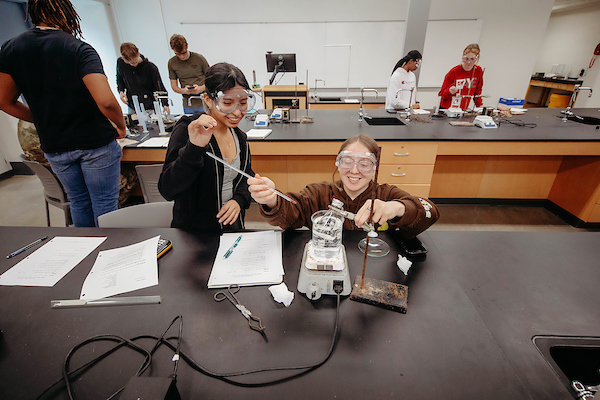 The program and all of the degree options are certified by the American Chemical Society
(ACS). The primary purpose of the chemistry program is to educate students in an area
of science which is rapidly expanding. The chemists of today are involved in the development
of a multitude of new materials such as plastics, drugs, semiconductors, and agricultural
products. Research chemists are conducting studies of the fundamental nature of matter
which lead to expanded knowledge in medicine, biology, and health sciences.
The program and all of the degree options are certified by the American Chemical Society
(ACS). The primary purpose of the chemistry program is to educate students in an area
of science which is rapidly expanding. The chemists of today are involved in the development
of a multitude of new materials such as plastics, drugs, semiconductors, and agricultural
products. Research chemists are conducting studies of the fundamental nature of matter
which lead to expanded knowledge in medicine, biology, and health sciences.
Each course in chemistry stresses laws, theories, and applications in the lecture portion and offers students the opportunity to have hands-on experiences with modern equipments in laboratories. Students are encouraged to take full advantage of the scientific opportunities available in the program by joining a research group. Chemistry is one of the highly recommended courses of study for students interested in pursuing careers in a variety of professional endeavors such as the health sciences: medicine, pharmacy, dentistry, and allied health fields.
The program and all of the degrees are certified by the American Chemical Society (ACS). The primary purpose of the chemistry program is to educate students in an area of science which is rapidly expanding. The chemists of today are involved in the development of a multitude of new materials such as plastics, drugs, semiconductors, and agricultural products. Research chemists are conducting studies of the fundamental nature of matter which lead to expanded knowledge in medicine, biology, and health sciences.
Each course in chemistry stresses laws, theories, and applications in the lecture portion and offers students the opportunity to have hands-on experiences with equipments in laboratories. Students are encouraged to take full advantage of the scientific opportunities available in the program by joining a research group. Chemistry is one of the highly recommended courses of study for students interested in pursuing careers in a variety of professional endeavors such as the health sciences: medicine, pharmacy, dentistry, and allied health fields.
The professional option focuses on a broad-based and rigorous chemistry education and hands-on training that prepare students to become effective scientific professionals and competitive applicants to jobs and graduate schools.
It is especially recommended for students who plan to pursue graduate studies in chemically related fields or those persons wishing to seek employment as industrial chemists such as chemical technologist, quality control manager, health & safety professionals, etc.
The biochemistry option is primarily designed to provide the background needed for students seeking entrance into professional medical (pre-med), dental schools (pre-dent) or pharmacy schools (pre-pharm).
It will also greatly benefit students seeking technical jobs such as formulation chemist, public health professionals, etc, that require multidisciplinary training in biology and chemistry as well as an abundance of science laboratory skills.
The general option provides considerable concentration in chemistry while permitting a wider selection of electives.
By judiciously choosing electives, students can enrich their scientific knowledge and technical skills to prepare for futures in technical marketing, environment and health sciences, computer science, technical writing, , education, technical illustration, engineering, and law and policy.
The chemistry minor is designed to meet the needs of students who are looking at careers where significant chemistry experience would be advantageous, but do not major in chemistry. Students will complete General chemistry, Organic chemistry and Quantitative Analysis courses with labs.
The chemistry technician certificate is designed to meet the needs of students who are looking to move into a lab setting and need the ability to tune their education to meet requirements of specific chemistry areas. Students will complete General chemistry and Organic chemistry courses with labs. Students will then work with their advisor to choose additional upper division courses such as Biochemistry, Physical Chemistry, Quantitative Analysis or Research in order to focus their certificate.
The American Chemical Society (ACS) has an excellent portal for chemistry graduates on chemistry job opportunities and career and how to make transition from college to a career. Click here to find more information.
Chemistry graduates can go on to pursue a wide range of career paths. Students with a baccalaureate degrees in chemistry have much scope to use their knowledge within a range of research and development sectors, including roles within chemical engineering, chemical and pharmaceutical industries, healthcare and more. Our graduates work in government and private sectors, including toxicology labs, government schools, and medical and health care facilities. Others go on to medical schools, graduate schools, and other professional schools. For information on how to prepare yourself to apply to graduate school in chemistry, explore the ACS's Planning for Graduate Education in Chemistry portal page.
A group for anyone interested in Chemistry or taking Chemistry classes and would like to make some contacts. We meet in McEver 28 at 12:15 on the 1st and 3rd Thursday every month. Lunch is provided (unless we potluck) and there is an experiment demonstration at the end of every meeting. Dues are $10 per semester.

ATU Chemistry students volunteered in Tinkerfest 2025 (https://museumofdiscovery.org/event/tinkerfest-2025/)

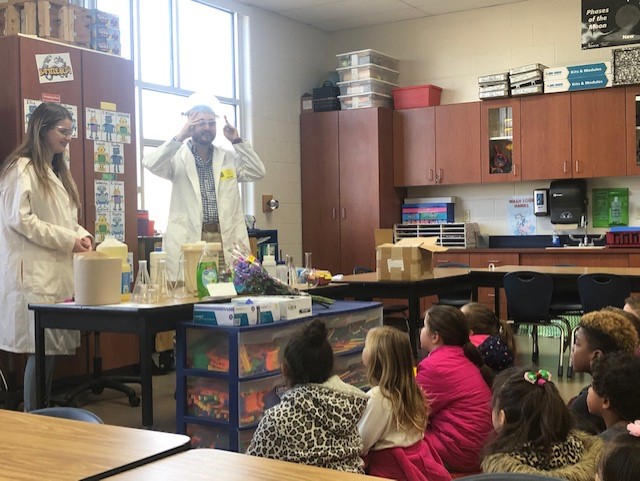
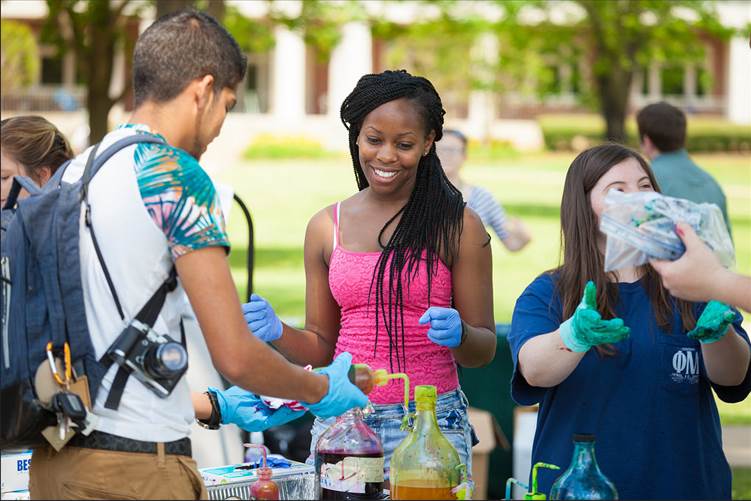
Charles Mebi
Physical Science
McEver 18
cmebi@atu.edu
(479) 356-2151
Flavio Arellano (President)
At ATU, students produce their own research with faculty guidance. It’s one of the advantages of attending TECH where your professors work alongside you and are dedicated to getting you ready for life beyond the undergraduate experience.
Faculty members are excited to work on a variety of research projects with our students during the academic year in volunteer positions, for credit (see CHEM 499x/495x), to work toward "Honors" recognition, or in the summer as part of the interdisciplinary research projects or on externally funded research programs.
The Chemistry Department is housed in the McEver building. Within our teaching and research laboratories, we have diverse equipments for studies in analytical chemistry, biochemistry, inorganic, organic, physical and computational chemistry. These include, but are not limited to, the following:
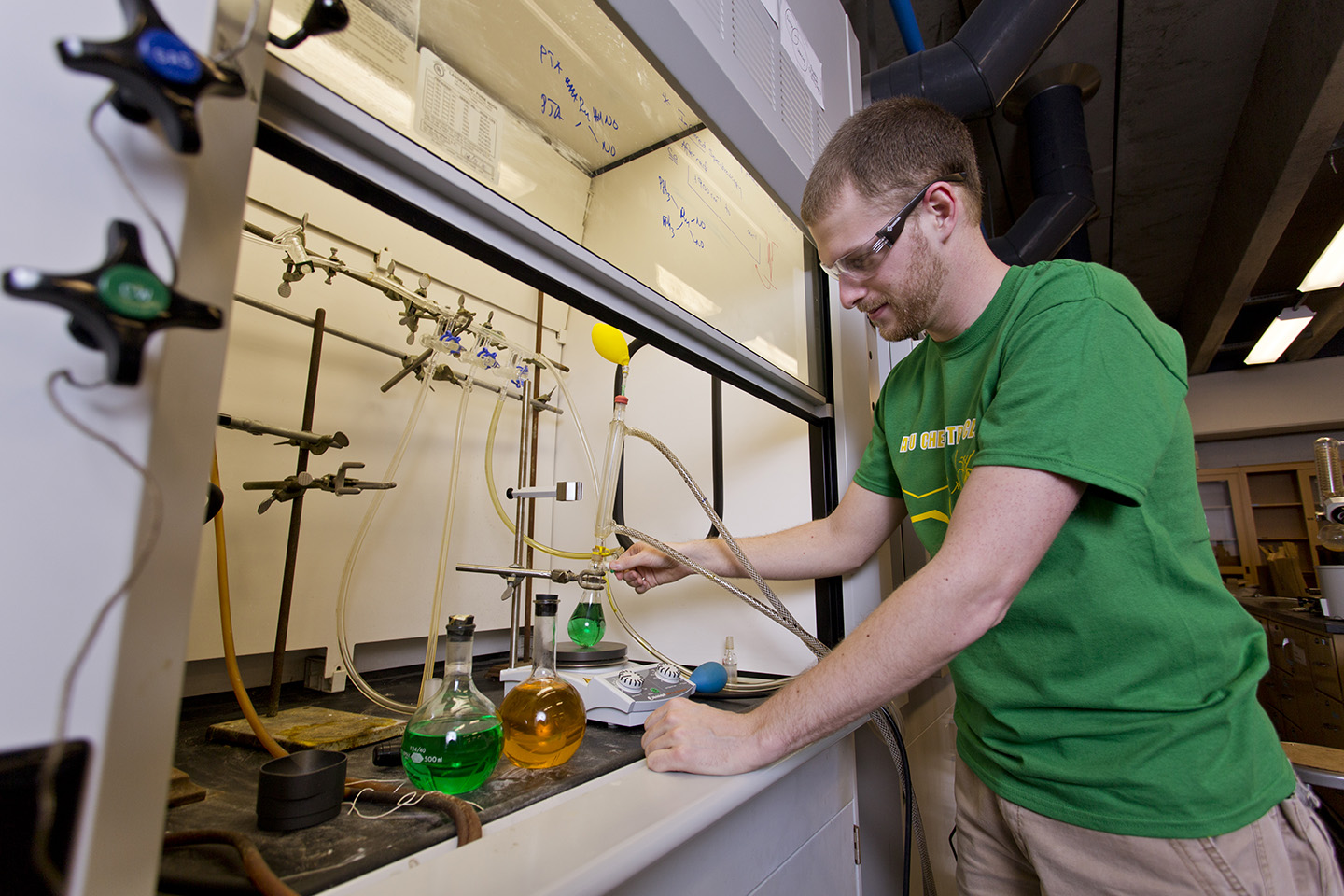
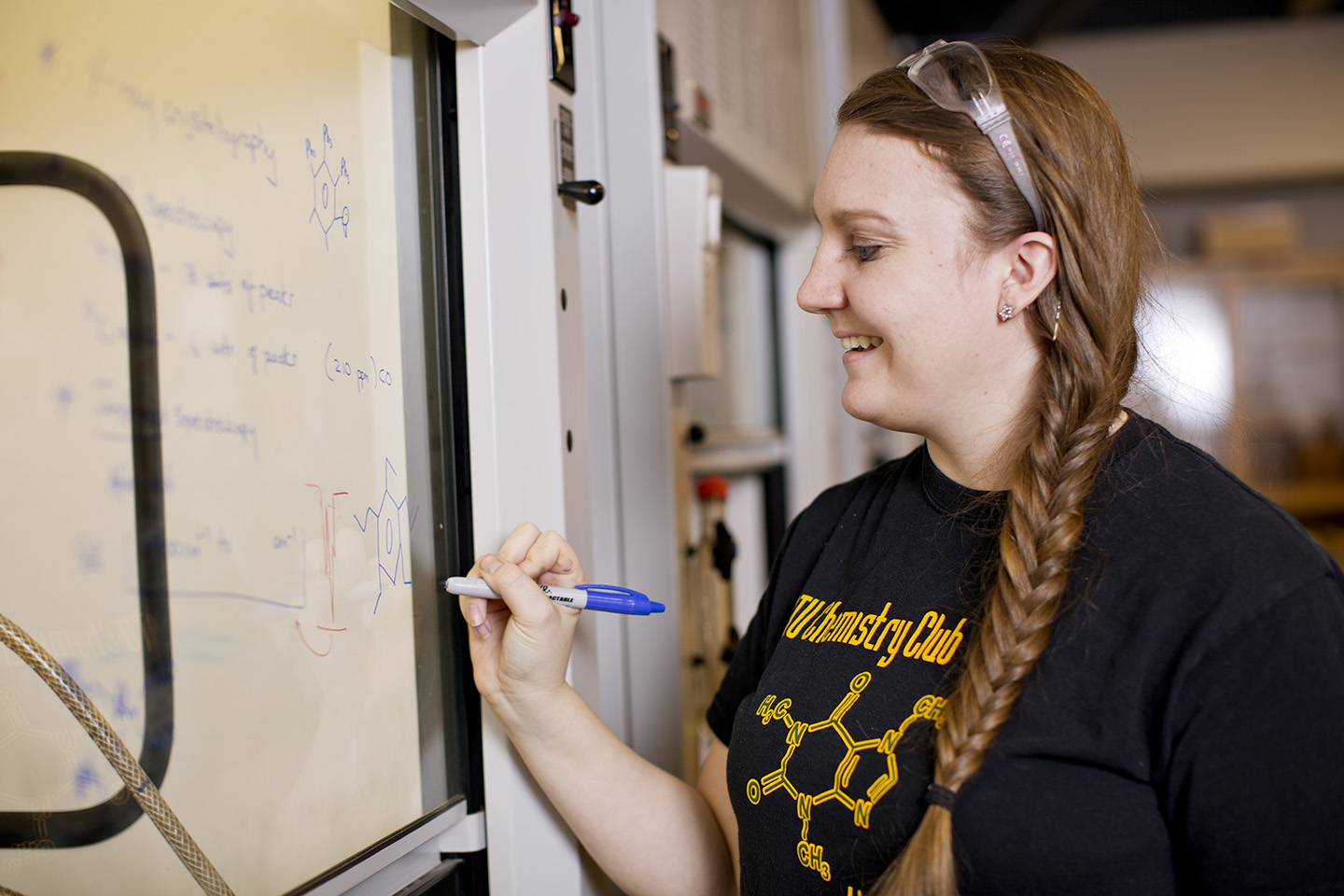
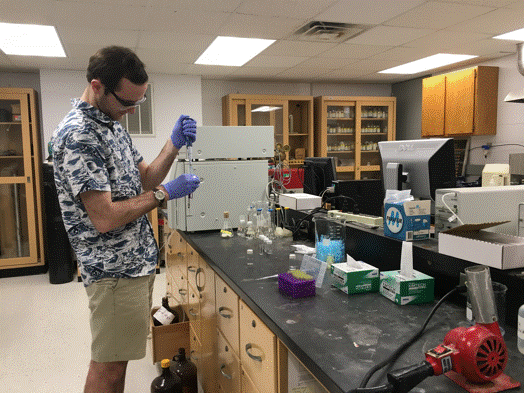
A fundamental part of science is the presentation of one’s work to fellow scientists. TECH Chemistry undergraduates often present their research findings at local, state, and national conferences. Attending such research conferences provide the students with a more authentic research experience and an opportunity to meet others in their subject area.
Unique opportunities abound for students interested in attending symposiums and conferences. Funding may be available via undergraduate research programs and/or external grants/travel allowances. Students should contact their respective faculty mentors for more up to date informations.
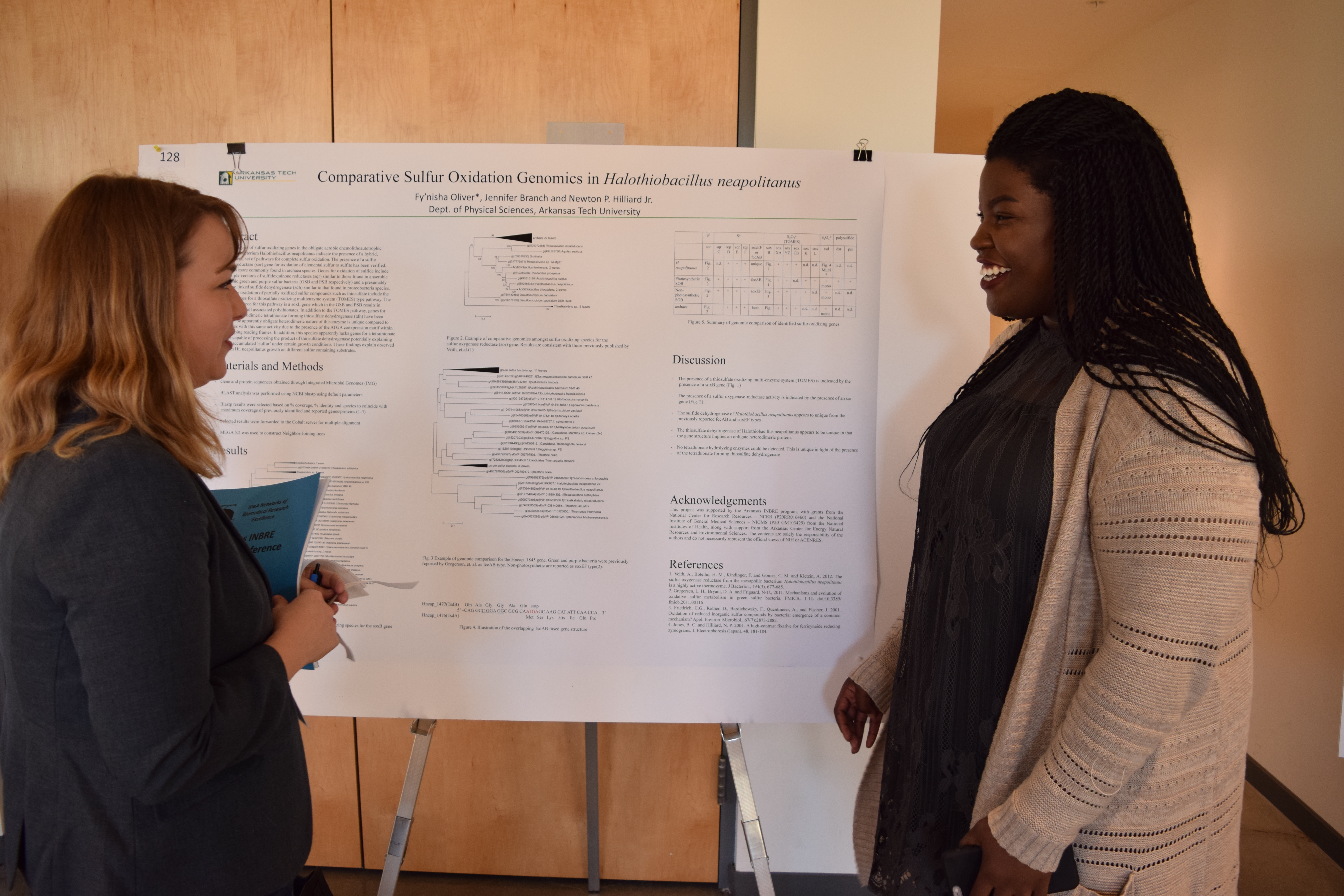 |
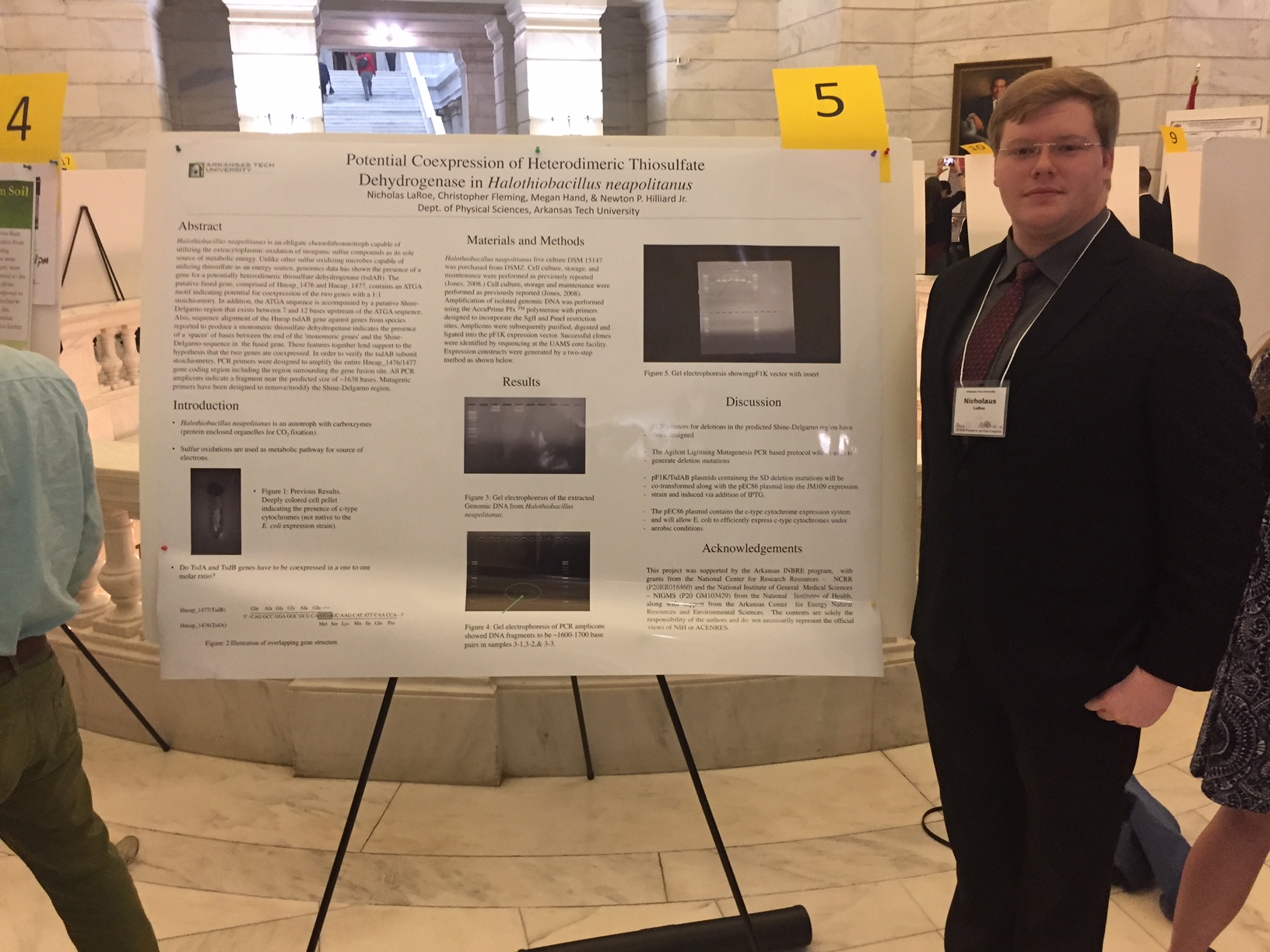 |
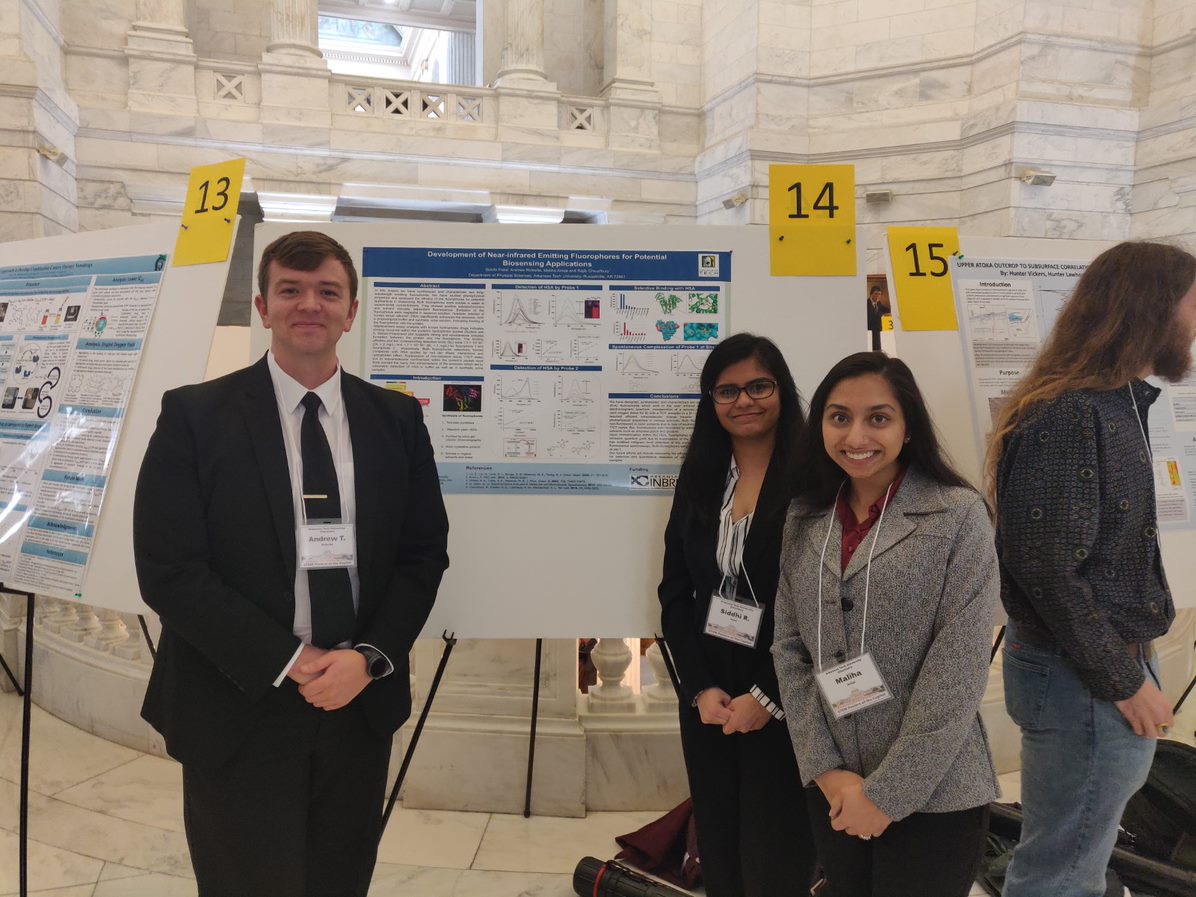 |
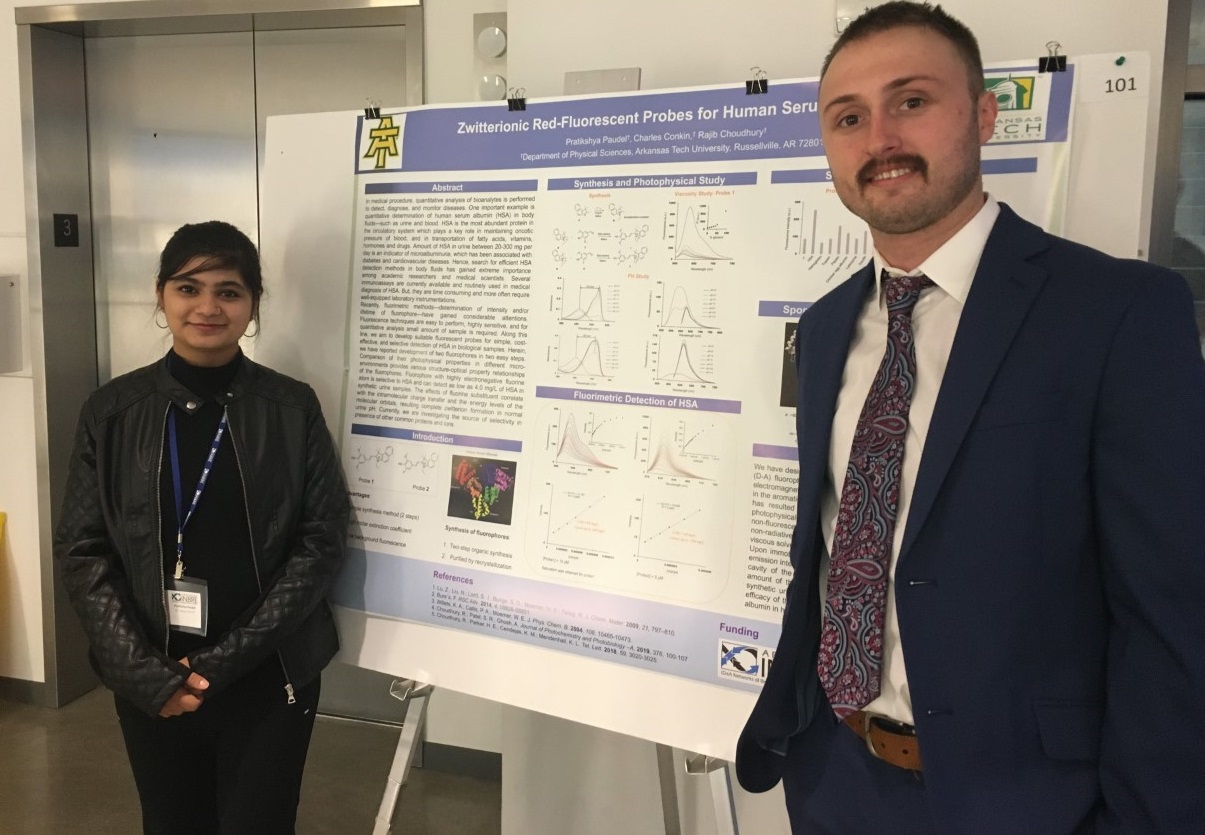 |
Chemistry Department
1701 N. Boulder Avenue
Russellville, AR 72801-2222

